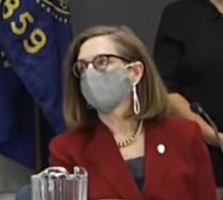 Post an Event
Post an Event
| Benton County Republicans’ Private Fundraising Event, “Bent-on Boots and Bling” with Trey Taylor |
| Friday, September 5, 2025 at 5:00 pm |
| Featuring Trey Taylor
Music Private Event
Friday, September 5, 2025 5:00-5:30 pm VIP Reception
5:30-8:00 pm Heavy Appetizers,
Auction, Concert
Red: $750 VIP Reception
Front Row Table Sponsor
White: $500 Table Sponsor
Blue: $50 per person
Limited Seating. Get Yours Now!!!
Support Local
Dress up: Bling, Cowboy, Patriotic Benton County Republican
FUNDRAISER
www.BentonGOP.org
Get your tickets today at:
https://www.bentongop.org/event-details/benton-county-republicans-fundraiser/form
About Trey:
Trey is the youngest African American Man in Country Music History. The Denver Post wrote
"It's impossible to miss his enthusiasm. With a fondness for cowboy boots, gaudy colors and dazzling jewelry, Trey Taylor could stand toe to toe with any of the Pop, Country or even Rap
contemporaries of his generation.“ |
| Trysting Tree Golf Club, 34028 NE Electric Rd., Corvallis |
The Governor stacks the Council without Senate approval
SB 286 began hearings this week in the Oregon Legislature. “Environmental justice†is being defined as the fair treatment and meaningful involvement of all people regardless of race, color, national origin or income with respect to the development, implementation and enforcement of environmental laws, regulations and policies.
Governor Brown’s request for
SB 286 is nothing short of continuing her control clamping down on the environment using a Council. The proposal is to create the Environmental Justice Council within the Department of Environmental Quality as the fiscal agent. She stacks the Council without Senate approval:
SB 286 converts a task force into a Council. A task force that had limited focus on low-income communities that was expected to complete its work by elevating the role of environmental justice advocates in formulating the state’s environmental policies that adequately reflects highly impacted communities, including the utilization of cumulative impact analysis by natural resource agencies.
On the other hand, the Environmental Justice Council is to develop a cumulative impact analysis for
all communities utilizing the natural resource agencies. Expanding the focus doesn’t just identify more vulnerable populations and environmental health disparities, it creates environmental burdens that impact everyone and is toxic to the economy. Looking for environmental conditions that impacts the climate is creating a problem that needs to be solve that will have an adverse impact on the economy and thus taxpayers.
A D V E R T I S E M E N T

A D V E R T I S E M E N T
One of the task force duties was to refine and clarify how we measure vulnerability and underinvestment using a leading-edge scientific methodology, cumulative impact analysis. In consultation with the Racial Justice Council’s Environmental Equity Committee, the Council is to evaluate laws related to the environment with a focus on potential policy changes that advance environmental equity. Race and poverty correlate to vulnerability and additional factors including age, health, multiple sources of exposures, geography, work exposures, and other exposures are often layered onto communities. The Council will have unfettered impact on many of the Statewide Planning Goals: local planning, land use, and public facility programs.
Let’s not forget that Governor Brown promised “secure equal rights and equal opportunity for all and to promote social and economic justice and the health and safety of all Americans.â€
--Donna Bleiler| Post Date: 2021-02-10 07:07:57 | Last Update: 2021-02-10 07:30:22 |
Willamette Valley lags
Governor Kate Brown today announced that 12 counties improved in risk level, with 10 improving from Extreme Risk for the first time since November, effective February 12. County risk levels under the state's public health framework aim to reduce transmission and protect Oregonians from COVID-19. The framework uses four different risk levels for counties based on COVID-19 spread—Extreme Risk, High Risk, Moderate Risk, and Lower Risk—and assigns health and safety measures for each level.
Effective February 12 through February 25, there will be 14 counties in the Extreme Risk level, 11 at High Risk, three at Moderate Risk, and eight at Lower Risk. The county risk level drives
what can be done in each county.
Lower Risk (8)
Baker (Moved from High)
Curry
Gilliam
Grant (Moved from Moderate)
Sherman
Tillamook
Wallowa
Wheeler
Moderate Risk (3)
Harney (Moved from Lower)
Lake (Moved from Lower)
Morrow (Moved from Extreme)
High Risk (11)
Douglas
Clackamas (Moved from Extreme)
Clatsop (Moved from Extreme)
Columbia (Moved from Extreme)
Deschutes (Moved from Extreme)
Hood River (Moved from Extreme)
Klamath (Moved from Extreme)
Linn (Moved from Extreme)
Lincoln
Multnomah (Moved from Extreme)
Washington (Moved from Extreme)
Extreme Risk (14)
Benton
Coos
Crook
Jackson
Jefferson
Josephine
Lane
Malheur
Marion
Polk
Umatilla
Union
Wasco
Yamhill
“Thanks to Oregonians who have stepped up and made smart choices, we have made incredible progress in stopping the spread of COVID-19 and saving lives in Oregon," said Governor Brown. "This week we will see 10 counties move out of Extreme Risk, including the Portland tri-county area, for the first time since November. This is welcome news, as we'll start to see more businesses open up and Oregonians being able to get out a bit more.
"It’s also incredibly important that we continue to remain vigilant and protect our neighbors and loved ones as we face virulent new strains of COVID-19. This means continuing to wear masks, keep our physical distance, and avoid indoor gatherings. If we want to keep businesses open, reopen schools for in-person instruction, and stay safe, we must keep up our guard. Until vaccines are more widely available, case counts could go back up if we don't keep following safety measures."
The Oregon Health Authority will examine and publish
county data weekly. County risk levels will be reassigned every two weeks. The first week's data will provide a "warning week" to prepare counties for potential risk level changes. The next assignment of risk levels will be announced February 23 and take effect February 26.
--Staff Reports| Post Date: 2021-02-09 17:42:10 | Last Update: 2021-02-09 18:03:52 |
Anti-Gun bill hearing scheduled for Feb 18th
Oregon
HB 2543, which will allow the State Police to delay a firearm’s purchase forever even when there is no denial on a background check, has been scheduled for a hearing on February 18th 2021 At 1PM.
The summarized language of the bill is expressed here:
"Prohibits transfer of firearm by gun dealer or private party if Department of State Police is unable to determine whether recipient is qualified to receive firearm."
Currently both Oregon and Federal law allow a buyer to take possession of a firearm if the State Police do not issue an approval after 3 business days as long as there has not been an actual denial.
According to reports, the OSP has a long history of failing to complete background checks and things have only gotten much worse since Covid and the increase in attempted purchases.
The OSP’s “Firearms Instant Check†unit may reportedly even “cancel†firearms sales that they do not want to bother investigating with no apparent lawful authority to do so, according to some observers.
People who are delayed are faced with the frustration of contacting the OSP “challenge line†only to likely have their calls ignored or mishandled.
Anyone who has tried to deal with a state agency or collect an unemployment check during the Covid lock=down knows how easily the state can simply ignore you.
A D V E R T I S E M E N T

A D V E R T I S E M E N T
If this bill is passed persons who have no criminal history of any kind will have no recourse if the State Police either mismanage the background check or simply refuse to conduct one.
A person whose safety is in danger can be told by OSP that they are simply out of luck. There are reports of “delays†on gun purchases that have gone on for several years. Under this bill gun buyers will be totally at the whim of yet another failed state agency.
As you know, Oregonians are no longer allowed to testify against legislation in the Capitol.
While the Democrat controlled legislature has invented a “process†to testify in writing or “remotely†and pretended that this is a fair replacement, in fact, actually getting your testimony on the record is entirely hit or miss.
Below are the “instructions†for submitting testimony now that you have been locked out of the building. Make sure you are providing testimony for the
House Judiciary Committee’s Feb 18th meeting on HB 2543.
For those who chose to provide testimony, the key arguments against this bill are:
- The long history of bad record keeping by the OSP
- The frequent prior restraint on a right in the absence of any criminal history
- The lack of response from OSP when they delay a buyer and the complete lack of recourse for persons wrongfully prevented from purchasing firearms.
Under this bill, a single mom with a stalker who cannot rely on protection from any state agency can be told that she has to wait forever to have the means to protect herself and her children.
--Bruce Armstrong| Post Date: 2021-02-09 17:15:49 | Last Update: 2022-01-01 18:19:55 |
The timing is tone deaf
There has been a great deal of focus on bars and restaurants as victims of government policies. Lost are those businesses downstream that supply these businesses. Often they are equally impacted.
Oregon Breweries wineries, cideries and distilleries are an essential part of Oregon’s economy and identity. Prior to the COVID-19 outbreak, Oregon was home to 400 breweries, 73 distributors, and 37,200 farms, creating thousands of good-paying jobs and several billion dollars in wages. Many of those jobs are now at risk or have been lost.
The last thing these homegrown businesses need is a tax increase. Tax increases only make it harder for these businesses to invest in rehiring, equipment, upgrades and expansion, and will result in higher prices for consumers.
Oregon brewers help create 43,000 jobs and $2 billion in wages each year. Unfortunately, more than 10,000 of those jobs are expected to be lost because of COVID-19 closures. We’ve already seen dozens of our local breweries shutter. These statistics tell the story.
- Oregon beer generates nearly $6.7 billion dollars in economic output and nearly $1 billion in taxes.
- As many as 20% of craft breweries are unsure they will be able remain open because of COVID-19.
- Because of COVID-19, it’s estimated Oregon beer sales will have decreased by $284 million in 2020.

The tone deafness of this tax increase at this time was not lost on one lobbyist for a distribution company. "Even Kate Brown realizes that this is going to be too hard on the industry." Opponents of the tax have a website prepared called
DontTaxMyDrink.org. A legislative bill has yet to surface.
The idea for the tax increase is reportedly the brainchild of Mike Marshall, the co-founder and director of
Oregon Recovers, which describes itself as "an inclusive statewide coalition comprised of people in recovery–and their friends and family—uniting to transform Oregon healthcare to ensure world-class prevention, treatment, and recovery support services for Oregonians suffering from the disease of addiction."
Marshall, who is no stranger to politics, directed Governor Kitzhaber’s 2014 reelection campaign, before helping to found Oregon Recovers. Some insiders have commented that the tax idea is a little bit outside the mission for the organization.
--Staff Reports| Post Date: 2021-02-09 12:30:05 | Last Update: 2021-02-09 18:45:48 |
Does this make schools safer?
The Senate Interim Committee on Education has proposed
SB 238, which would prohibit School Resource Officers statewide.
Previously, there was an SRO at each of Portland’s nine public high schools. Most large high schools throughout the state hosted an SRO at their school.
If enacted,
SB 238 would change this. It would be a statewide ban and would:
- Prohibit schools and school districts from employing SROs
- Prohibit schools and school districts for contracting for security at any school-related event (such as sporting events, concerts, etc.)
- Redirect funds “upstream to restorative justice†efforts
- Place restrictions on when a school could call police to situations involving “imminent serious physical injuryâ€/crimes
What does this solve?
- This bill is part of the “Defund the Police†movement from groups like BLM/Reimagine Oregon.
- It is based on a false narrative that SROs are racist, target students of color, and contribute to a “school to prison pipeline.â€
- Student activists and some radical members of the Portland City Council used the George Floyd incident last spring to propose these changes without any specific proof or data that SROs on campus are harmful.
What are the consequences?
- The SRO program is primarily preventative. They patrol neighborhoods around schools to keep students safe. They build relationships with kids, and help with bullying situations, violence, online threats, and can prevent school shooting situations through deterrence.
A D V E R T I S E M E N T

A D V E R T I S E M E N T
- The nature of large sporting events, concerts, etc. necessitates security personnel to keep kids safe.
- Schools should be allowed the discretion to contact police as necessary.
- This legislation takes decision-making from the school district and imposes more statewide mandates on schools.
What are the equity issues? Is it fair that adults and lawmakers value protection for themselves, but not for Oregon students? On inauguration day, the Oregon State Capitol was protected by Oregon State Police and Oregon National Guard troops. There was no mention of “restorative justice†or reinvesting police funds to community groups on that day.
People who want to influence the process can contact the members of the
Senate Education Committee.
--Mary Miller, Oregonians for Liberty in Education| Post Date: 2021-02-09 09:50:26 | Last Update: 2021-02-09 12:30:05 |
The only science that supports this is that lottery generates tax revenue
Last week was the first week in months that restaurants with video lotteries could open. However, they will not be allowed to serve food.
Senator Dennis Linthicum (R-Klamath Falls) released the following statement to call out the hypocrisy of Governor Brown’s tyrannical and chaotic pandemic response:
“According to the Governor’s “relaxed†guidelines, people can sit 6 feet apart at restaurants to touch video lottery machines but will not be allowed to eat. The only science that supports this decision is the fact that the lottery generates more tax revenue for the Governor to spend than do restaurants. With this decision, the Governor is making herself clear: tax revenue is more important than workers’ livelihoods. The Governor is putting the interests of state coffers ahead of the more than 28,000 people in the hospitality industry who were thrown out of work last December.â€
Last week, Oregon’s Occupational Safety and Health Administration (OSHA) also made permanent temporary rules that have been imposed against law-abiding business owners. The agency claims that “we have not yet defeated this disease†so they must continue to strangle main street businesses. Yet, supposedly, they will repeal the rules “once they are no longer needed.â€
“Businesses are again being asked to trust government elites, the Governor and OSHA, although there has been no consistent standard for them. Everyone can see the rampant failures of the Governor as she arbitrarily gives a few lucky businesses license to open because they have state-owned lottery machines on their premises. But this is not following any legitimate analysis or understanding of the data as COVID cases are higher now than when she shut them down in early 2020. The Governor is playing politics with Oregonian’s livelihoods. People deserve better.â€
--Staff Reports| Post Date: 2021-02-09 09:35:53 | |
Finding the Business-Mom Balance
We’ve all heard of the “serial entrepreneur†– that individual who seems compelled to take every great idea to market by creating a company. What if you’re a stay-at-home mom, knee-deep in breakfast cereal and carpooling, with that same entrepreneurial drive? Can being a “cereal entrepreneur†– or “mompreneur†– work?
Fact: The collaborative spirit and empathic nature women typically bring to their relationships are desirable leadership traits. Plus, with today’s technology freeing up many work-at-home options, your entrepreneurial dreams are more feasible than ever.
Learn from the trailblazers
Fast Company notes the
existing gender disparity among entrepreneurs, yet the
roster of early trailblazers who also juggled motherhood may be longer than you think – from haircare entrepreneur Madam C.J. Walker to Chinese-American dining whiz Joyce Chen. Take both inspiration and doses of reality from them; learning from those who have gone before you is an important pillar of success.
Plan, prioritize and prepare
Moms learn early on the importance of
efficiency and juggling. Diaper-changing necessities are all within reach, homework time is balanced with screen time, and you’re likely already thinking about tomorrow’s dinner menu.
Utilize those organizational skills as you’re incorporating your business life into your mom life. Whether you prefer a digital planner or a paper organizer, set aside time for your business tasks and stick to it – understanding that you can’t beat yourself up if your child suddenly falls ill.
Certain phone calls and appointments have to be taken during the day, while many of your business and personal housekeeping tasks can be done after hours. Prioritize them accordingly – are there emails you can answer after the kids are in bed? Does that pile of laundry need to be done before 5 p.m.?
Setting aside time to do advance
meal preparation can save you, and your family, a great deal of frustration. Turn planning and preparing the week’s menu into a fun family activity.
Ask, and learn
Entrepreneurs go in with a big idea and the drive to execute it – they do not go in thinking they know everything there is to know about running a business.
Ask questions, ask for help, and solicit feedback. Take advantage of free resources like those from the
Small Business Administration. Your local chamber of commerce can likely provide you with some excellent networking opportunities and often offers events and programs for starting a business.
There is also much to glean from the internet to bring your vision to life. You’ll find a wealth of knowledge available from the millions who have traveled this same journey. You can even tap into business plan resources, explore business ideas, learn about marketing and market research, launch an ecommerce store and
easily register your LLC online.
No stranger to work
Motherhood has always been hard and is the perfect embodiment of doing several things at once. Accept that things won’t always go as planned; as noted in Fast Company, many successes endured
failures first.
Parenthood won’t erase your entrepreneurial drive, and it can create a tug-of-war between that business desire and your parental instincts. Recognize and accept that you will sometimes feel guilty about filling the family bowls with cold cereal on a busy morning rather than preparing a hot breakfast, but those are not the things you and your family will remember – what they’ll remember is you having the courage and the will to follow your both your business and your motherhood dreams to become a “cereal entrepreneur.â€
Photo by Unsplash
--Staff Reports| Post Date: 2021-02-09 08:34:19 | Last Update: 2021-02-09 09:50:26 |
A plan is needed to make up the lost knowledge
During the COVID-19 pandemic students have experienced challenges and learning loss because of many factors. Summer break time also results in learning loss.
Some state lawmakers are considering adopting a year-round calendar as a means of helping to address the learning loss.
Republican State Senator Brad Hawkins of Washington State is sponsoring Washington
SB 5147 which seeks to explore alternative school calendars. Section 1 of the bill states
“The COVID-19 pandemic has created a unique set of challenges and circumstances that have tested the K-12 education system. Due to reduced instructional time, educational inequities, and the inability to access technology and educational services, many students have suffered learning loss and a disruption to their educational experience. As a result, the legislature finds that a school calendar other than that traditionally used by Washington schools may help students to obtain the knowledge and skills needed to prevent negative educational outcomes. By extending the school year or using an alternative calendar, selected school districts will be better able to address the negative outcomes of the pandemic in a flexible and locally responsive manner. It is also the intent of the legislature to utilize federal stimulus funding as a potential source of funding for this program.â€
Most students are not served by the current outdated school calendar in place in many states like Oregon. This is an opportune time to seriously consider year round school.
--Celeste Gervascio| Post Date: 2021-02-09 08:33:29 | Last Update: 2021-02-09 08:44:07 |
Noncompliance of social distancing mandates
On February 2, 2021, the Oregon Liquor Control Commission(OLCC) issued an Order of Immediate License Suspension to the licensee of Route 99 in the City of Canby in Clackamas County, Oregon for not following public health social distancing and face covering requirements. The business, which holds a Full On-Premises sales license, is not allowed to sell any alcoholic beverages, according to the OLCC.
This past January the OLCC received complaints that the owner-operator was allowing groups of customers to gather and consume food and alcohol inside the licensed premises.
OLCC enforcement staff visited the bar and restaurant as a follow-up to an initial conversation with the licensee after receiving several complaints about the business not following Coronavirus social distancing orders from the state's governor.
OLCC staff had previously contacted the operators of Route 99 to provide education and verbal instructions on how the business could come into compliance.
Upon arriving at the business for an in person inspection, OLCC compliance staff observed that Route 99’s parking lot was close to full and could see patrons inside the business socializing without masks.
After entering Route 99’s dining area, OLCC staff observed a large group of customers, many consuming food and drinks in the bar, all of the customers and employees were socializing without masks.
At this time, no fatalities have been reported as an outcome of this incident.
--Bruce Armstrong| Post Date: 2021-02-08 18:53:50 | Last Update: 2021-02-08 19:20:43 |
Restaurants, already struggling, will see a downstream impact.
As restaurants try to survive through Governor Brown’s lock down orders, ranchers can’t get their meat to market causing a sharp increase in the stakes you eat. A
study released earlier this year estimates the COVID-19 pandemic will cost the cattle industry $13.6 billion. The problem isn’t sales, it’s the limited capacity of processing plants, which is causing the price of beef to rise.
Representatives David Brock Smith (R-Port Orford), saw that the Wholesome Meat Act of 1967, which requires states to have inspection programs “at least equal to†the federal meat inspection program, was an opportunity for Oregon. He sponsored
HB 4206, which passed in the 2020 Special Session. It authorizes the Oregon Department of Agriculture to establish a program for state inspection of the processing and sale of meat products from amenable and nonamenable species, except for equine species.
However, the pandemic accelerated the need for processing and rendering facilities for processing the remains of harvested and natural caused or disaster caused loss of animals. At this time there are no rendering facilities to process animal remains. Representative Smith is back with Representative Mark Owens (R-Crane) sponsoring
HB 2785 that will provide grants to upgrade and build processing centers to operate under the state meat inspection program. The $10,000,000 requested would also expand the federal inspection operation for meat processing in Oregon.
The ranchers have gone from being paid by renderers for waste remains and then were paying them to take waste, now there is nowhere in the state to take animal remains. Representatives Smith and Owens are also sponsoring
HB 2787, which will study developing animal rendering facilities to utilize every part of the animal by reducing, converting, or melting down fat. Animal rendering facilities process animal by-product materials to produce tallow, grease, and high-protein meat and bone meal; and products that can be used in foods or to make soap, candles, or lubricants. Recommendations are to be reported to the appropriate interim committees of the Legislative Assembly by September 15, 2022.
A D V E R T I S E M E N T

A D V E R T I S E M E N T
Branching out for more control over processing meats and a potential for new industries is a positive for new jobs for one of Oregon’s top commodities. However, Governor Kate Brown is looking to fill the $2 billion gap in her budget and is leaving no stone unturned. Regardless of the consequences, she has requested the ranchers double their fees on brands in
SB 32.
But, wait, that wasn’t enough. She is also requesting
SB 33 which adds 30% to the food safety program license fees. The Oregon Department of Agriculture issues licenses for a variety of activities related to food manufacturing and processing.
SB 33 authorizes rules to increase the license fees listed by no more than 15% for the fiscal years beginning July 1, 2021 and July 1, 2023:
ORS 603.025 – meat products
ORS 616.706 – food establishment
ORS 619.031 – animal food slaughtering and processing
ORS 621.072 – use of milk grade designation
ORS 621.166 – dairy products plant
ORS 621.266 – pasteurizer operator
ORS 625.180 – bakery or bakery distributor
ORS 628.240 – refrigerated locker plant
ORS 632.720 – egg handler
ORS 632.730 – commercial egg broker
ORS 635.030 – non-alcoholic beverage manufacturer
While restaurants are deciding whether they can survive the pandemic, the closures roll up to ranchers and food producers. Likewise, increased fees roll down to struggling restaurants and individuals struggling from high unemployment. Can the economy rebound on higher fees?
--Donna Bleiler| Post Date: 2021-02-08 07:16:52 | Last Update: 2021-02-07 21:51:33 |
Do we need common sense hammer legislation?
Lawless Multnomah County Oregon is in the news again for reports of violence and vandalism.
It comes as no surprise to many observers, as the local District Attorney Mike Schmidt has pledged to not prosecute so many violent rioters that have dominated the regional news as of late.
Now, a man has broke several windows in the Lloyd District in Portland, Oregon and was arrested with a hammer believed to be used in the crimes.
Local authorities have recently been trying to convince the public, that the failing area of Oregon needs more gun control in order to address the rampant crime. Reports such as this seem to suggest that violent criminals will use whatever weapon might be at their disposal, and that disarming innocent people only sets them up to be victimized by the criminal class.
On Saturday, February 6, 2021 at 4:28a.m., Portland North Precinct officers were dispatched to a report of alarms going off and someone breaking windows in the area of Northeast Broadway and Northeast 15th Avenue.
Responding officers located the suspect near Northeast 16th Avenue and Northeast Schuyler Street. The suspect was not compliant but was arrested after trying to run away. A hammer was recovered as evidence.
Officers checked the area for victims and located several locations damaged:
- Two separate phone stores 400 block of Northeast Broadway
- Empty retail space 1600 block of Northeast Martin Luther King Jr Boulevard
- Salon and spa 1400 block of Northeast Broadway
- Smoke shop 900 block of Northeast Broadway
- Parked vehicle in the area of Northeast 16th Avenue and Northeast Schuyler Street
Shaun A. Patterson, 28, was arrested and booked into the Multnomah County Detention Center on a charge of Criminal Mischief in the First Degree. Other charges are possible. Officers made an effort to contact all affected victims, but if anyone believes they're a victim and have not made contact with the police, please make a police report.
--Bruce Armstrong| Post Date: 2021-02-07 13:21:47 | Last Update: 2021-02-07 13:37:40 |
There are some exceptions. Union teachers, for instance.
The Oregon Bureau of Labor and Industries is
providing answers to the question of employer vaccine mandates. BOLI is the state agency that addresses worker rights claims, discrimination and civil rights. The agency is directed by the elected labor commissioner, Val Hoyle.
According to the Oregon Bureau of Labor and Industries, the federal Equal Employment Opportunity Commission has released
guidance under federal law that makes it clear that employers may require workers to receive a COVID-19 vaccine – with limited exceptions. This is also true under Oregon law.
Employers cannot require COVID-19 vaccinations in the workplace if they employ specific types of workers or have contractual limitations. Workers may make requests for exemptions or accommodations due to disability or religion.
Most workplaces can require employees to get a COVID-19 vaccine, but some types of workers are exempt by law. Exempt workers include: people licensed or certified to provide health care, employees of a health care facility, a licensed health care provider or a clinical laboratory, firefighters, law enforcement officers, corrections officers, or parole and probation officers.
For employers with a unionized workforce, such as public school teachers and classified employees, a collective bargaining agreement could contain direct prohibitions on mandatory vaccines in the workplace. Although less common, individual employment contracts could present similar challenges.
In a stunningly bizarre combination of policies, teachers get in the front of the line for vaccines. However, this front-of-the-line position does not obligate them to return to the classroom. Further, though they get the vaccine first, they are not able to be required by their employer to take the vaccine as a condition of employment.
Under civil rights and disability laws, employers with mandatory COVID-19 vaccine policies will need to consider requests for exceptions for individuals with either sincerely held religious convictions, or a disability that prevents them from receiving a COVID-19 vaccination. While employers are not required to grant the exception if it creates an “undue hardship†on the business or a “direct threat†to the safety of the employee or others, employers should engage with the employee to determine if a reasonable accommodation is possible.
--Staff Reports| Post Date: 2021-02-07 08:48:31 | Last Update: 2021-02-07 09:00:21 |
Read More Articles












 The tone deafness of this tax increase at this time was not lost on one lobbyist for a distribution company. "Even Kate Brown realizes that this is going to be too hard on the industry." Opponents of the tax have a website prepared called DontTaxMyDrink.org. A legislative bill has yet to surface.
The tone deafness of this tax increase at this time was not lost on one lobbyist for a distribution company. "Even Kate Brown realizes that this is going to be too hard on the industry." Opponents of the tax have a website prepared called DontTaxMyDrink.org. A legislative bill has yet to surface.









